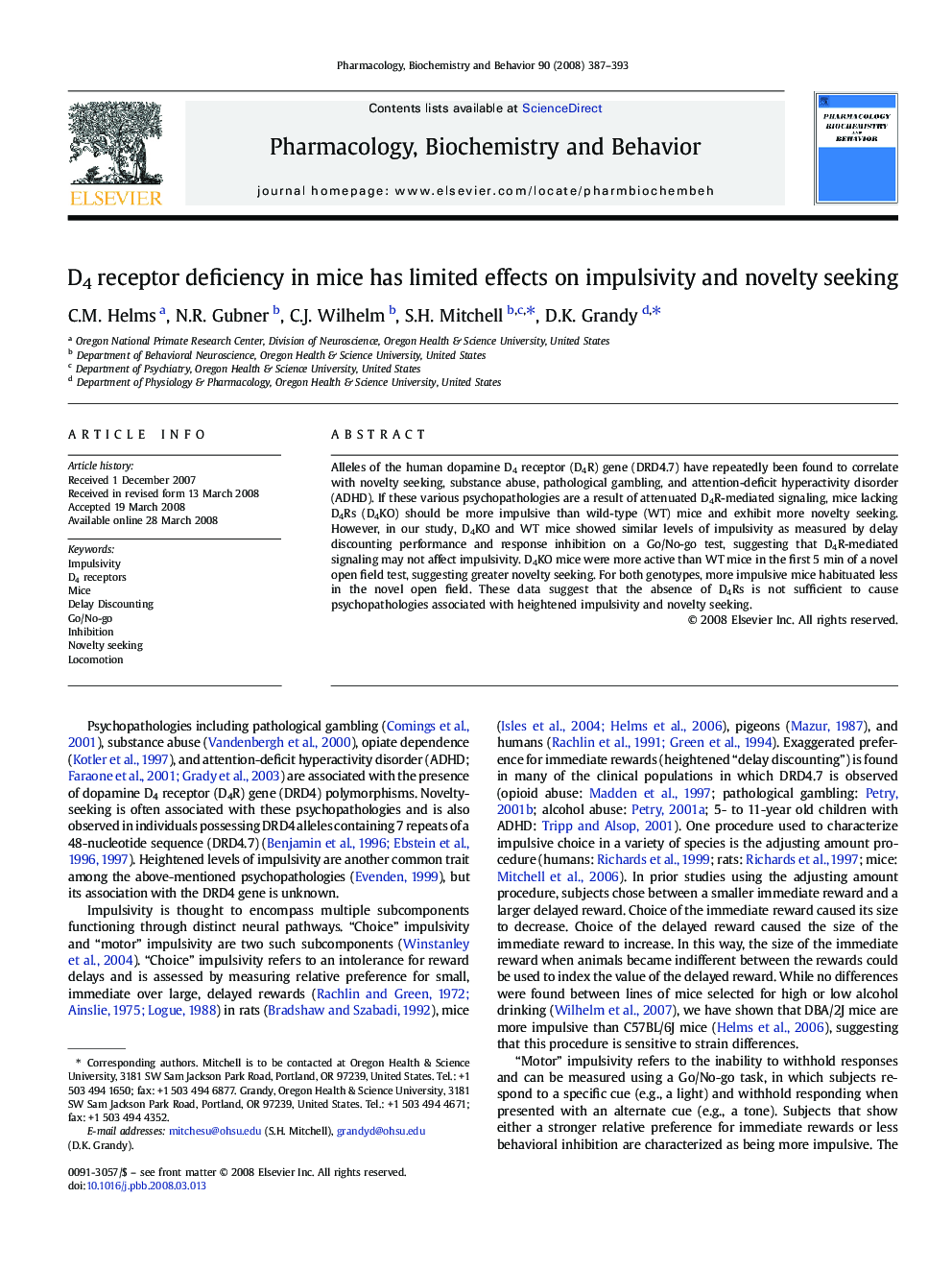| Article ID | Journal | Published Year | Pages | File Type |
|---|---|---|---|---|
| 2013899 | Pharmacology Biochemistry and Behavior | 2008 | 7 Pages |
Alleles of the human dopamine D4 receptor (D4R) gene (DRD4.7) have repeatedly been found to correlate with novelty seeking, substance abuse, pathological gambling, and attention-deficit hyperactivity disorder (ADHD). If these various psychopathologies are a result of attenuated D4R-mediated signaling, mice lacking D4Rs (D4KO) should be more impulsive than wild-type (WT) mice and exhibit more novelty seeking. However, in our study, D4KO and WT mice showed similar levels of impulsivity as measured by delay discounting performance and response inhibition on a Go/No-go test, suggesting that D4R-mediated signaling may not affect impulsivity. D4KO mice were more active than WT mice in the first 5 min of a novel open field test, suggesting greater novelty seeking. For both genotypes, more impulsive mice habituated less in the novel open field. These data suggest that the absence of D4Rs is not sufficient to cause psychopathologies associated with heightened impulsivity and novelty seeking.
